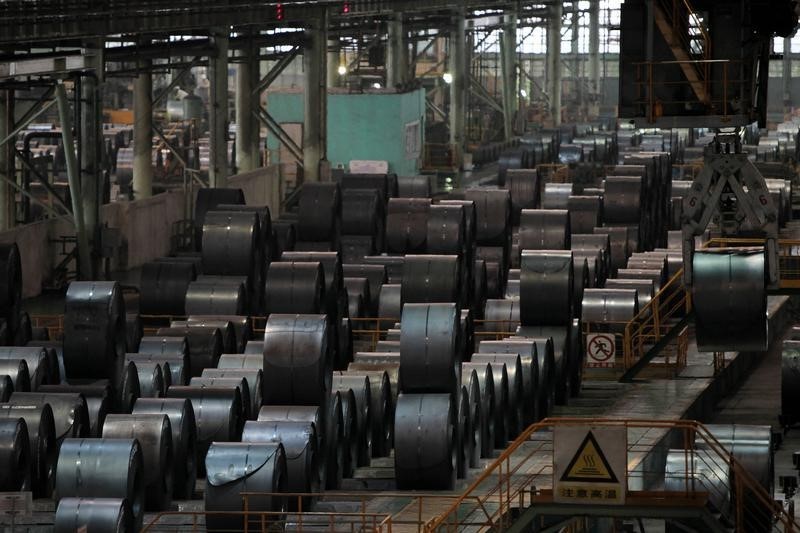By Ruby Lian and David Stanway
SHANGHAI (Reuters) - Chinese steel mills are likely to be forced into making deeper cuts in output over the next few months, as shrinking demand, soaring losses and tighter credit undermine firms in the world's biggest producer, industry officials and analysts said.
The industry has defied pressure to make big cuts so far, though the bottom line of steel firms is suffering and efforts to boost exports have riled rival producers in countries ranging from India to the United States.
Major steel producers suffered total losses of 28.12 billion yuan ($4.42 billion) in the first three quarters of 2015, the China Iron and Steel Association (CISA) said.
"Since 2010, government departments have issued 20 policy documents to eliminate inefficient capacity, and some has been shut, but overall capacity still hasn't fallen," CISA vice-chairman Zhu Jimin told a briefing.
But with steel prices at their lowest in decades state-owned mills are starting to close plants.
Bayi Steel, a unit of China's second-largest steelmaker, the Baosteel Group , has already shut a production base that has an annual capacity of 3 million tonnes.
Hangzhou Iron & Steel , another state-owned mill, will close its main Banshan production base by the end of 2015, while Maanshan Iron & Steel will shut some production lines in the fourth quarter, the firms said.
"Output cuts will accelerate by the first quarter of 2016, though a cliff drop is still unlikely, and iron ore prices could fall further to an average of $40-50 a tonne next year," said Zhao Chaoyue, an analyst with Merchant Futures in Guangzhou.
Iron ore prices <.IO62-CNI=SI> have slumped nearly 30 percent since the beginning of this year to $50.80 on a rising tide of production and slowing demand.
Private Chinese steel firms running at a loss are also at risk of going bust if banks demand loan repayments.
"It is a clear trend that credit is getting tighter and tighter. Once the cash chain is cut off, steel mills will go bust," Xu Lejiang, chairman of Baosteel, told reporters.
Custeel, a CISA-affiliated consultancy, said this week that 24 blast furnaces had suspended operations in October as mills scheduled overhauls, adding that the number was expected to rise as losses mount.
China's steel output in the first nine months dropped 2.1 percent from a year ago to 609 million tonnes. Apparent domestic consumption fell 5.8 percent, CISA figures showed.
China currently has 1.25 billion tonnes of annual crude steel capacity, a surplus of around 300 million tonnes.

"There are two ways of resolving the supply imbalance - raising demand or cutting supply, and in the current economic conditions, there is no hope of raising demand," CISA's Zhu said.